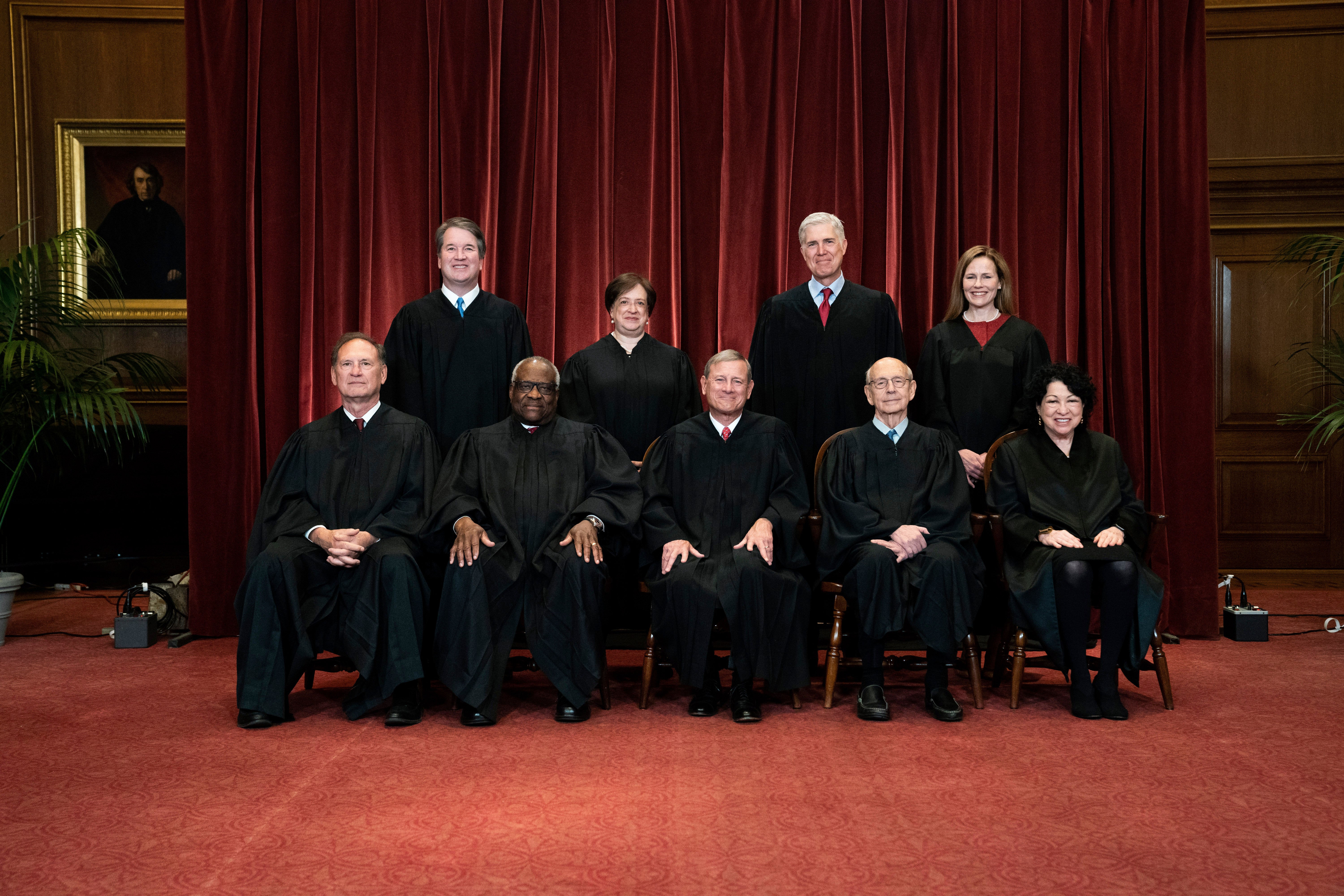A look at high court's top cases in new term starting Monday
Abortion, guns and religion top the Supreme Court term that begins Monday

Your support helps us to tell the story
From reproductive rights to climate change to Big Tech, The Independent is on the ground when the story is developing. Whether it's investigating the financials of Elon Musk's pro-Trump PAC or producing our latest documentary, 'The A Word', which shines a light on the American women fighting for reproductive rights, we know how important it is to parse out the facts from the messaging.
At such a critical moment in US history, we need reporters on the ground. Your donation allows us to keep sending journalists to speak to both sides of the story.
The Independent is trusted by Americans across the entire political spectrum. And unlike many other quality news outlets, we choose not to lock Americans out of our reporting and analysis with paywalls. We believe quality journalism should be available to everyone, paid for by those who can afford it.
Your support makes all the difference.Abortion, guns and religion top the Supreme Court term that begins Monday. A look at those and a few other notable cases:
ABORTION
Dobbs v. Jackson Women’s Health (19-1392) is a direct challenge to Roe v. Wade and Planned Parenthood v. Casey, the Supreme Court's major decisions over the last half-century that guarantee a woman's right to an abortion nationwide. Lower courts blocked Mississippi's ban on most abortions after 15 weeks of pregnancy, but a more conservative Supreme Court has agreed to review those rulings. Abortions would be banned in a dozen states and severely restricted in about a dozen others if the justices were to overrule their earlier abortion decisions. Arguments are Dec. 1.
GUNS
New York State Rifle & Pistol Assn. v. Bruen (20-843) is a case that could expand gun rights in the United States and involves the right to carry a firearm in public. It is also the court’s first foray into gun rights since Justice Amy Coney Barrett joined the high court, making a 6-3 conservative majority. The case involves New York's restrictive gun permit law. New York state is among six states that limit who has the right to carry a weapon in public. Arguments are Nov. 3.
STATE SECRETS
United States v. Zubaydah (20-827) and FBI v. Fazaga (20-828) are two cases that involve what the government claims are “state secrets,” information that if disclosed would harm national security. The first case the court will hear involves a Guantanamo Bay detainee who a lower court said was tortured in CIA custody. He's seeking information from two former CIA contractors. Arguments are Oct. 6. The other state secrets case involves a group of Muslim residents of California who allege the FBI targeted them for surveillance because of their religion. The group's claims were dismissed at an early stage after the government cited state secrets, but an appeals court revived the case. Arguments are Nov. 8.
TAXPAYER FUNDING OF RELIGIOUS SCHOOLS
Carson v. Makin (20-1088) is the court's latest case over discrimination based on religion. Parents in Maine are suing over the state's exclusion of religious schools from a tuition program for families who live in towns that don’t have public schools. The court has issued a string of rulings in recent years in favor of churches and families challenging state restrictions on taxpayer money going to religious institutions. Arguments are Dec. 8.
BOSTON MARATHON BOMBING
United States v. Tsarnaev (20-443) is the Biden administration's effort to have the death sentence reinstated for Boston Marathon bomber Dzhokhar Tsarnaev. An appeals court threw out the sentence, but not the convictions, for Tsarnaev's role in the 2013 bombing that killed three people near the finish line of the Boston Marathon. Arguments are Oct. 13.
CAMPAIGN FINANCE
Federal Election Commission v. Ted Cruz for Senate (21-12) is a challenge by Sen. Ted Cruz, R-Texas, to rules about limits on repaying a candidate for federal office who loans his or her campaign money. Cruz made a loan to his campaign above the limit of $250,000 expressly to challenge the law. He won in a lower court. Arguments haven't been scheduled.